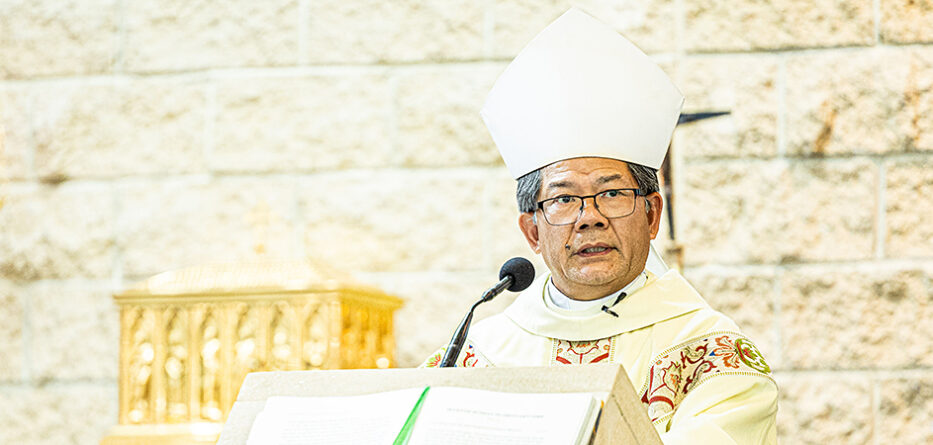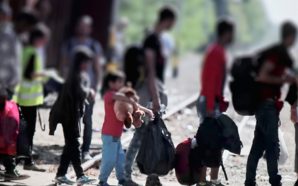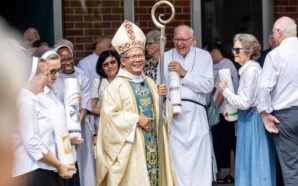Most Reverend Vincent Long Van Nguyen OFM Conv DD STL, Bishop of Parramatta
Homily for the Solemnity of The Most Holy Trinity Year A 2023.
Readings: Exodus 34:4-6, 8-9; Daniel 3:52-56; 2 Corinthians 13:11-13; John 3:16-18
4 June 2023
Modelling the love and life-giving dynamism of the Trinity
Dear brothers and sisters,
How can we foster our Catholic identity and conduct our mission in what may be described as a post-Christian culture? How can we live our Gospel-inspired values in a contested environment? This is increasingly evident in Church versus state confrontations like the proposed compulsory take-over of the Calvary Public Hospital by the ACT Government or when the Church advocates for matters that others disagree or oppose. The question of nurturing an authentic Christian witness and acting like leaven in the dough is one that requires deep discernment.
We are called to be a blessing for the Church and the world by the measure of our authentic witness. This authenticity lies in our courage to be the voice of the Gospel and the conscience of society. We are called to embody God’s alternate vision for humanity, living as contrast communities, avoiding cultural accommodations and demonstrating a different way to be a society.
Today, we celebrate the core of our Christian faith: the God of love in whose image and likeness we were created; the God who sustains all of creation and enables every living being to flourish in the communion of life and love. In celebrating the Trinity, we are moved to become a community that reflects the God of love among all peoples and the God of relational harmony with all that exists. Just as the Trinity is a dynamic power of transformation, we are called to walk the transformative journey until all things come to unity in Christ.
The Word of God highlights the call to be a believing community whose identity and mission is intimately bound up with relational transformation, both within and without. This is so because the God we believe in is fundamentally the God of right relationships.
In the first reading, God reveals to Moses as full of tenderness and compassion in spite of the betrayal and hardness of the heart on the part of his people. God is closely bonded with his people throughout the ebbs and flows of history. He delivered them from oppression and slavery in Egypt. Therefore, they are to form a post-exodus society, which would reflect the God of communion and love. This new society would be marked by concern for the God-given dignity of all and special attention to the most vulnerable. For Moses and the Israelites, worship of God is expressed in love of neighbour and human flourishing. At their best, Israel developed some of the most rigorous safety nets and a very sophisticated care economy in the Ancient Near East. Instead of the exploitation under Pharaoh, they enacted a divine mandate that protected those at the bottom of the society such as the orphans, widows and strangers.
In the Gospel, the primacy of love both as God’s revelation to the world and as our response to God is reaffirmed. In previous episodes, Jesus challenged Nicodemus to “be born again” or to “be born from above”. Nicodemus was a person of social distinction, privilege and entitlement. He was also a Pharisee who believed in self-made righteousness. Jesus’ challenge of being born again amounts to a conversion from self-entitlement to self-emptying. It is a breaking free from earning one’s privilege to caring for the underprivileged. Nicodemus was told a uncomfortable truth that God’s abundant life is not reserved for a few but to be shared with all. This God, quite unlike the way he had understood, requires a movement of letting go and emptying of love into others.
Dear sisters and brothers,
In celebrating the Trinity, we are to mirror the relational model of the Trinity that is revealed in Jesus’ style of radical self-emptying love, solidarity, simplicity and unity. In him, we see a God whose modus operandi is the antithesis of the power structures of this world that is tilted towards the privileged, the rich and the strong.
The Christian way of living cannot be other than the way shown in Jesus’ radical simplicity, solidarity and communion with God’s people and creation.
Believing in the Trinity means going out from ourselves to live in communion with God, with others and with all creatures. Indeed, Pope Francis speaks of the God of communion in Laudato Sí, saying that everything is interconnected, and this invites us to develop a spirituality of that global solidarity which flows from the mystery of the Trinity. Indeed, the synodal Church is Trinitarian in so far as it embodies the God of communion, participation and mission.
Our Diocesan Synod calls us all to listen to different points of view, to rethink what it might mean to be a community where each member takes responsibility to listen, to discern and to act: to shape together a new way of being community for mission.
Let us walk together, sharing the burdens of humanity, responding to the cry of the poor and the cry of creation. Let us go forward in our mission to actualise God’s plan for a shared destiny of hope, communion and life for all, confident of the victory of Christ and his promise to be with us till the end of time.








